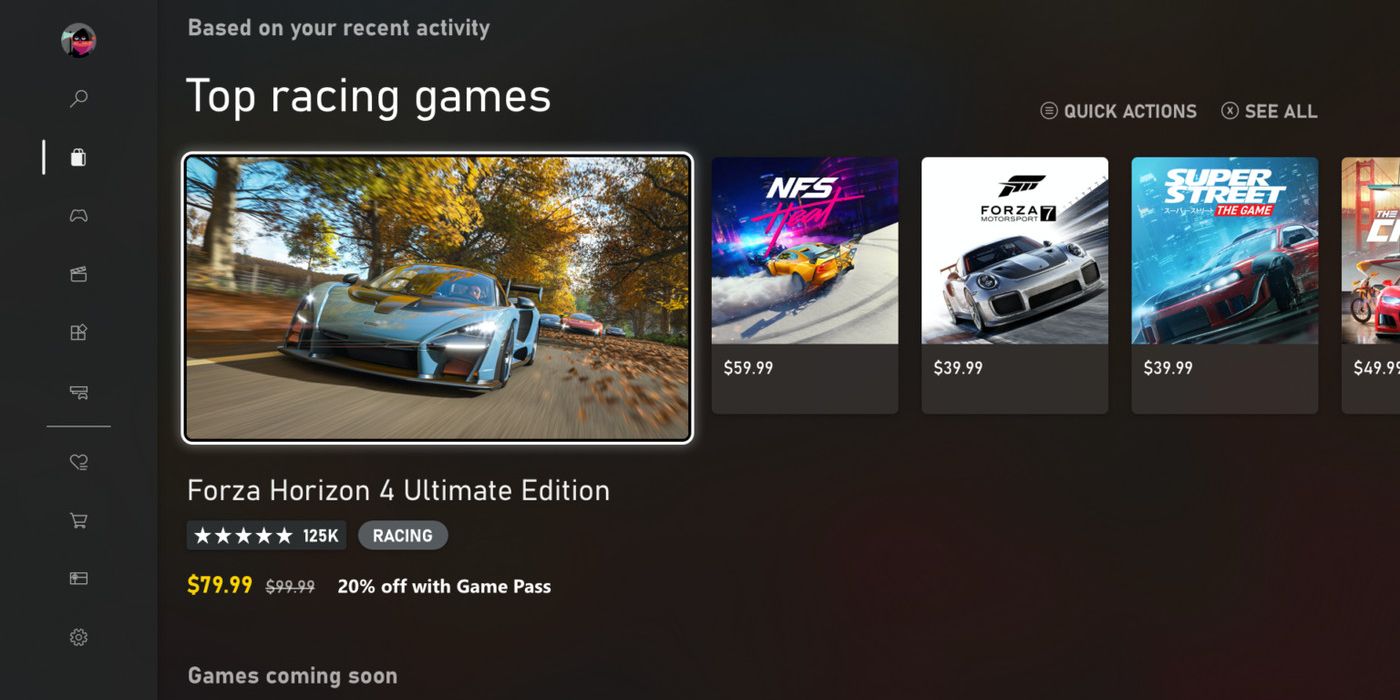Update: Microsoft has confirmed that the change to its store fees is not happening, and the store will keep a 30% cut.
Microsoft is working very hard to make the Xbox platform more attractive to gamers, developers, and partners with the start of the Xbox Series X/S generation. Gaining ground on PlayStation is no simple take, but Xbox Game Pass, PC gaming support, and expanding first-party game output are big steps forward. Now, Xbox is reportedly considering an extreme shift in revenue share on Xbox store purchases, increasing partners' share from 70% currently up to 88%.
The revelation comes via an internal document shared as part of the ongoing lawsuit between Epic and Apple, which Microsoft has involved itself in. The document is titled "Microsoft Store Policies & App Store Principles. Under the subheading "Microsoft Store Standard Fees & Revenue Share Overview" for the Xbox storefront there's a note for "Games" that "All games will move to 88/12 in CY21." Another note implies that the 88/12 revenue share is planned for the first half of calendar year 2021.
To clarify, Microsoft announced this past week that it was increasing partner revenue share to 88/12 through the Microsoft Store on Windows 10. That is officially confirmed and will start in August. The newly revealed document implies that Microsoft is planning to extend the 88/12 revenue share to the Microsoft Store on Xbox so that console developers will also receive a significantly better revenue share. This second part has not been officially announced, which could mean an announcement is coming soon or that plans have since changed.
The 70/30 versus 88/12 revenue share discussion is one of the video game industry's most heated and exciting topics. The Epic Games Store's introduction on PC has been hugely controversial, but few can argue against its 88/12 revenue share beong much healthier for game developers. It could mean more games, better-polished games, healthier working conditions, and more. As such, it's also led to a push for other storefronts to adopt a similar revenue share from developers and certain communities of game players.
In defense of keeping the 70/30 revenue share, there's a valid point to be had about how such a dramatic shift in revenue share could impact a platform's income. Epic Games was able to implement it because it was an entirely new revenue stream, whereas Steam relies heavily on the 70/30 and may have to make dramatic changes to its business if it goes to 88/12. Xbox, like Epic, can eat the costs because it's part of Microsoft, but it would only do so if it was persuaded it was beneficial in the long run.
Some benefits have already been acknowledged by Xbox, though. For example, the updated Microsoft PC revenue share requires developers also make their games available on xCloud. If Xbox is making these changes, the expansion of xCloud and Game Pass are likely key priorities. And it's likely if not certain that Microsoft has already done the math and knows this will work out in the long run for Xbox.
Source: The Verge


